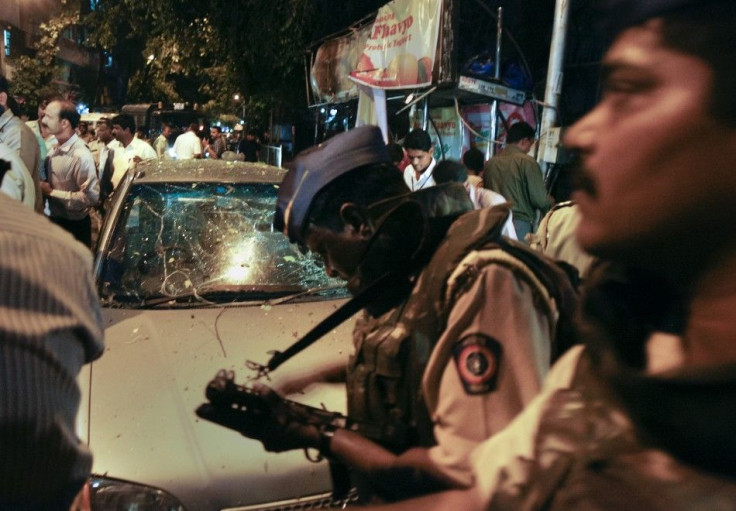Mumbai Blast Kills at Least 21 [PHOTOS]

In the country's deadliest terrorist attack since 2008, three bombs rocked the crowded neighborhoods of Mumbai, India's financial capital, during rush hour Wednesday, killing 21 people, Reuters reported.
Officials said at least 141 people were wounded in the 20-minute blast, the home ministry said in a statement.
Terrorists will obviously attack where it hurts most, said Prithviraj Chavan, chief minister of Maharashtra state, of which the city is the capital, said in televised statements. And Mumbai, which is home to India's biggest companies, stock and currency markets and the scene of 2003 and 2006 bombings, remains a prime target, he said.
This is another attack on the heart of India, heart of Mumbai. We will fully meet the challenge, we are much better prepared than 11/26, Chavan said.
Since the November 26, 2008 attacks, which killed 166 people, India has remained apprehensive about the threat of militant strikes, further raising tensions with rival Pakistan.
There was no immediate claim of responsibility for the bomb blasts, and Indian officials did not comment on who may have carried out the bombings.
But Home Minister Palaniappan Chidambaram said terrorists were to blame.
The blast occurred at about 6:45 p.m. (1315 GMT) within minutes of each other. Therefore, we infer that this was a coordinated attack by terrorists, Chidambaram told reporters.
According to officials, at least one car and a motorbike were used in the coordinated attacks in which improvised explosive devices were believed to have been used.
This tactic is much more in line with those used by more amateurish groups such as the Indian Mujahideen, who have targeted crowded urban areas before, Stratfor, a strategic affairs think tank, said in a statement.
The biggest blast was reportedly at the Opera House, which now serves as a place where diamond jewelry is sold and a hub for diamond traders.
We came outside, and the area was filled with black smoke. There were bodies lying all over the street, there was lots of blood... We saw many bodies missing arms and missing legs, said Aagam Doshi, a local merchant and witness, to Reuters. We began helping get the wounded on to motorcycles of diamond merchants. There were diamonds lying on the road everywhere.
A second blast hit south Mumbai, at the Zaveri Bazaar, India's biggest bullion market, which has been hit twice in the past. The third blast was at Dadar, in the center of the city, a busy intersection on Mumbai's sprawling suburban train network.
When I hear the blast, I tried to call because I knew he (husband) was in Dadar. Next thing I know, someone picked up the phone and said he was admitted to KEM (a hospital) so I came here, said Rinku Vishwakarma, whose husband is a carpenter. I have no idea how badly he is injured. I'm looking frantically for someone to help, she said, crying.
There was no immediate indication that any Pakistan group was involved. And Pakistan's President Asif Ali Zardari and Prime Minister Syed Yousaf Raza Gilani promptly condemned the blasts in a statement.
President Barack Obama also condemned the attacks. Secretary of State Hillary Clinton said she would go ahead with her plans to visit India next week and offered her condolences.
I believe it is more important than ever that we stand with India, dig deep in our partnership and reaffirm our commitment to the shared struggle against terrorism, Clinton said in an appearance in Washington.
© Copyright IBTimes 2024. All rights reserved.











